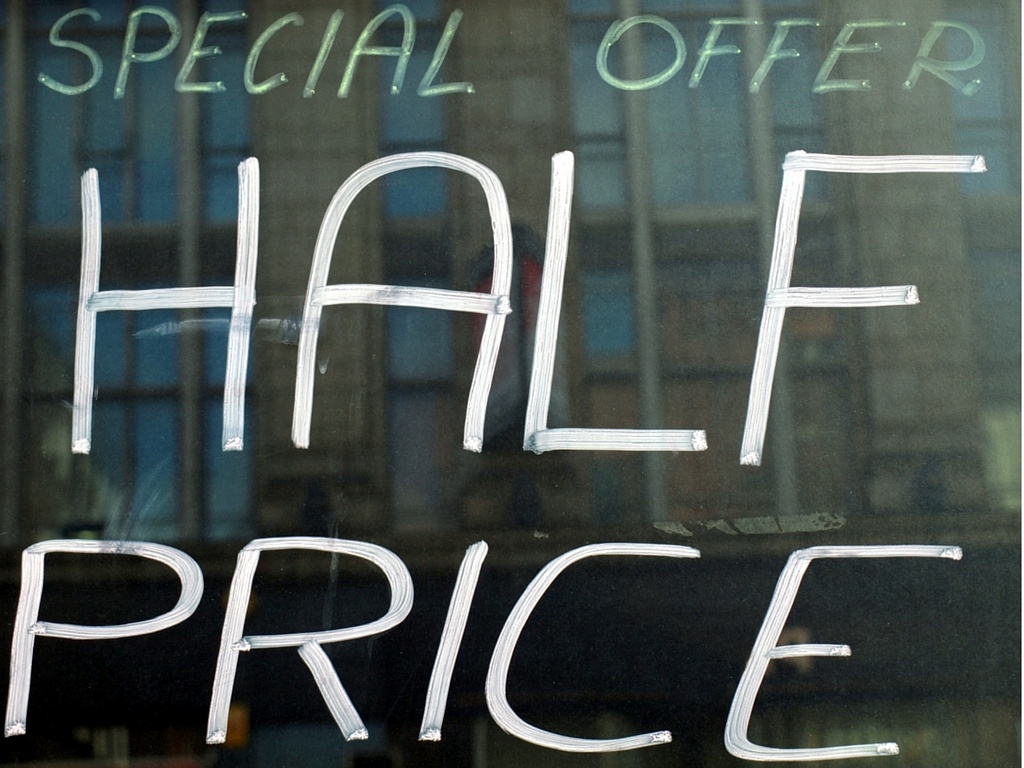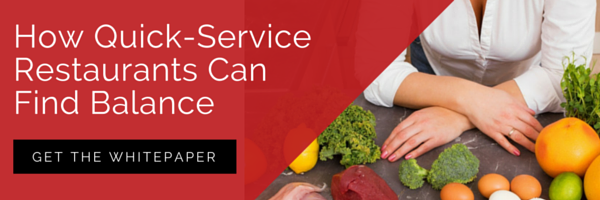
We know that "sustainable" doesn't come cheap. As we've recently discussed, it can take a long time and a tremendous financial investment just to develop a sustainable supply line — especially for niche ingredients. But Millennial consumers are clearly engaged with the sustainable food movement. Fast casual success stories like Chipotle — which takes great pains to source sustainable, non-antibiotic and non-GMO ingredients — prove it.
"Red Lobster, Olive Garden, TGIFridays, IHOP, Applebee’s and Chili’s combined are worth less than Chipotle," noted EcoWatch. "We won’t likely see any of the major fast food brands slip away any time soon, but they will have to reinvent their offerings to appeal to a new generation of diners."
Serving up the food Millennials demand at the price they can afford.
To reinvent the menu or not to reinvent? One of the reservations food developers and chefs have about jumping on board the sustainable food bandwagon is that it bumps prices up.
Millennial consumers may want restaurants to use all-organic ingredients, recycled paper and plastic ware and other eco-friendly inputs, but can they afford the output when they have a well-documented lack of disposable income, relative to preceding generations?
Somehow, it appears they can. Millennial consumers exhibit the curious habit of scrimping and sacrificing on daily purchases, just to be able to splurge on dining out with friends, going to shows, or other experiential purchases.
Millennials value experiences above all else. Anything new excites them, and they like to share their finds with their peers. Thus, they value exotic tastes, curated or recovered ingredients (the resurgence in ancient grains, for example) and products that bespeak their conscientiousness.
Achieving sustainability can be a major challenge for QSR, though, as it is hard to keep menu items at prices Millennial customers can meet often. The fast food business model relies on repeat customers; they cannot, as full-service restaurants can, sit back and rely on trade from destination diners.
Chipotle — and other up-and-coming fast-casual concepts like Washington's Burgerville and Florida's Evos — seem to have figured out a balance between pricing and sustainability.
But those brands are also culture-builders — they've built their businesses from the ground up with sustainability enshrined in their corporate ethos. In so doing, they have cultivated loyal followings of younger customers that can sustain their door traffic.
For other restaurants that are now turning to sustainability as a way either of keeping pace with the market, or completely re-adjusting a business model, the answer may be to offer a mix of value and premium menu items.
What is Cousins Subs doing differently?
When Wisconsin's Cousins Subs chain was founded in 1972, food sustainability and sound ecological stewardship were not top-of-mind for restaurateurs. In recent years, though, the company came around to the belief that sustainable food isn't a fad — it's a long-term trend.
Millennials aren't the only generation that concern themselves with learning about food sourcing. The generation behind them is onboard, too, according to Cousins Subs VP of Marketing, Justin McCoy.
"I don’t see the trend toward local and organic foods going away anytime soon," he told QSRWeb. "Consumers, especially Millennials and Generation Z, are very conscious and aware of where their food is sourced and how it is raised or grown."
Instead of completely revamping its menu, though, Cousins Subs undertook to develop several premium items that both fit with its traditional brand and bring it credibility for sourcing "local."
As a Wisconsin-based chain, the obvious solution was to switch all its cheese sourcing to in-state dairy companies. It also launched a Wisconsin cheese curd side dish.
Conditioning customers to expect premium pricing for "fresh" and "sustainable."
Del Taco — a California-based Tex-Mex fast-casual chain — traditionally focused on low-cost menu items. But when Paul Murphy became its CEO in 2009, he noticed that the company had an opportunity to leverage the way it prepared items — fresh-grated cheese, beans made daily — toward the Millennial consumer.
The chain quickly began to tout its fresh-prepared items and to introduce premium items like "Handcrafted Ensaladas," chorizo tacos, or its "Epic Burrito." The result? Same-store sales rose 6.3 percent last year.
Del Taco has not totally abandoned its low-cost menu items; it's just augmented the mix. It allows consumers to choose between wallet and ethic. There's a lesson there for other fast food retailers — sustainable food development does not require all a company's resources. But paying at least some attention to addressing the sustainability trend would be a wise investment.






